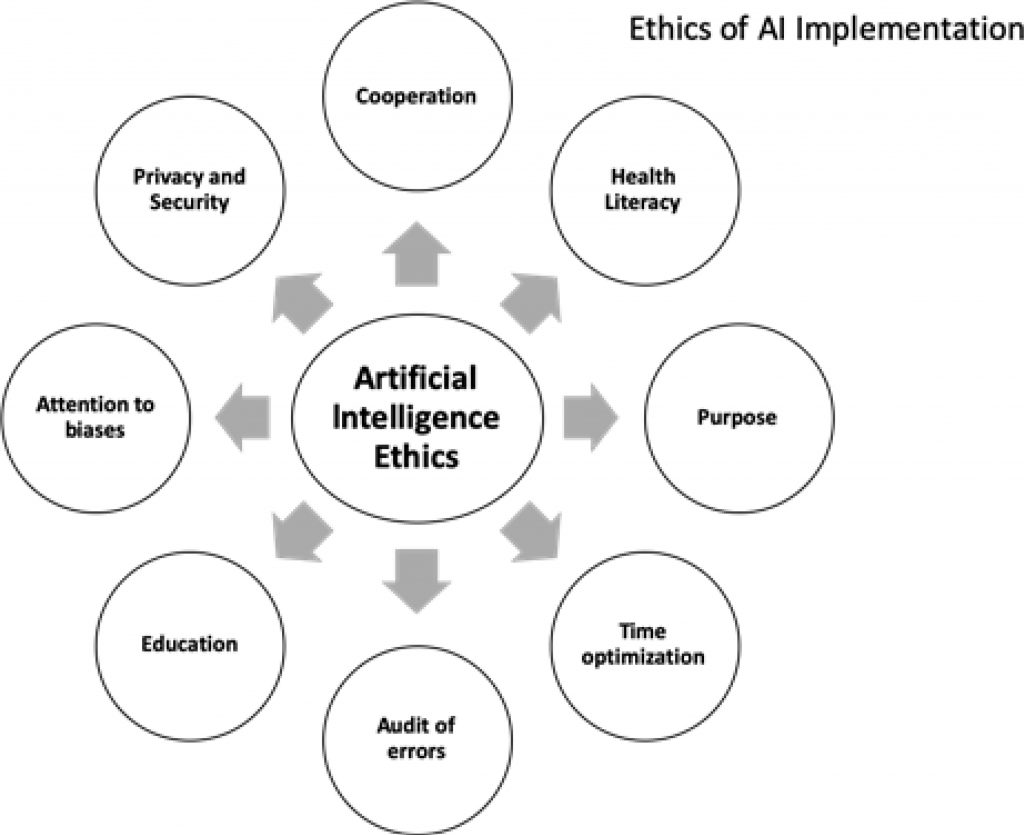Arq. Bras. Cardiol. 2020; 115(3): 579-583
Ethics, Artificial Intelligence and Cardiology
Introduction
In the not too distant future, an artificially intelligent computer program will probably diagnose heart conditions more accurately than a board-certified cardiologist. Biomedical knowledge grows significantly, making it impossible for contemporary health professionals to be updated on all content published in their field. Similarly, the amount of information about the patient is increasingly larger and more accessible, making real-time management, filtering and selection impractical for an individual. In this context, Artificial Intelligence (AI) has a relevant role in health decision-making. It is the result of the combination of sophisticated mathematical models and computation to produce refined algorithms capable of emulating (or imitating) human intelligence. It has allowed for interesting applications in virtually all fields of medicine and human knowledge. In particular, in cardiology, several applications have been shown to be successful. Han et al., for instance, used machine learning (ML), a subset of AI, to analyze if this tool would be helpful to identify patients at risk of future rapid coronary plaque progression. Clinical epidemiological features and quantitative and qualitative information from coronary computed tomographic angiography were used (all of which were obtained from the PARADIGM study). They included 1,083 patients in the study and tested 10 different models. LogitBoost performed better. The area under the receiver operating characteristic curve (AUC) was 0.83 — better than the 10-year atherosclerotic cardiovascular disease risk score (ASCVD risk score), which was 0.59. In another study, Than et al. evaluated whether Gradient Boosting (also a ML algorithm) would be beneficial in predicting the likelihood of type 1 acute myocardial infarction. Features such as sex, age, rate of change of cardiac troponin I concentration and paired cardiac troponin I of a sample with 11,011 patients were considered. AUC was 0.96 and the ML model had better performance than the traditional European Society of Cardiology 0/3-hour pathway. Hedman et al. developed a ML algorithm to describe heart failure with preserved ejection fraction groups of patients based on their phenotype. They used clinical and electrocardiogram data. Six different groups were identified, with different levels of inflammatory and cardiovascular proteins and also with different outcomes. In light of that, in cardiology, the process of incorporating AI into the clinical practice is accelerated. The use of AI in cardiology is present in our daily lives, such as recognition of disease phenotypes, diagnosis, prognosis, and in treatment algorithms. AI has a huge disruptive potential and some advocate the possibility of the emergence of a new species, Homo incredibile, which supports its decisions on data and promotes a revolution in the digital ecosystem. However, this paradigm shift has unfortunately brought with it a myriad of challenges. Ethical issues are a great concern regarding these new technologies, and we will discuss some of them, as well as possible solutions and precautions.
[…]
226

